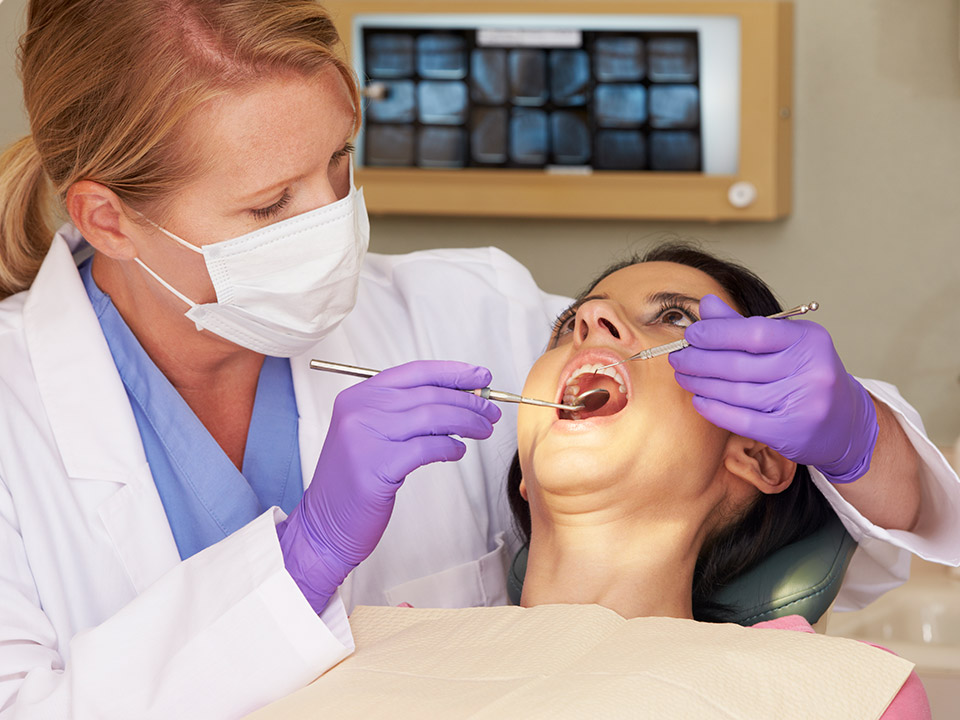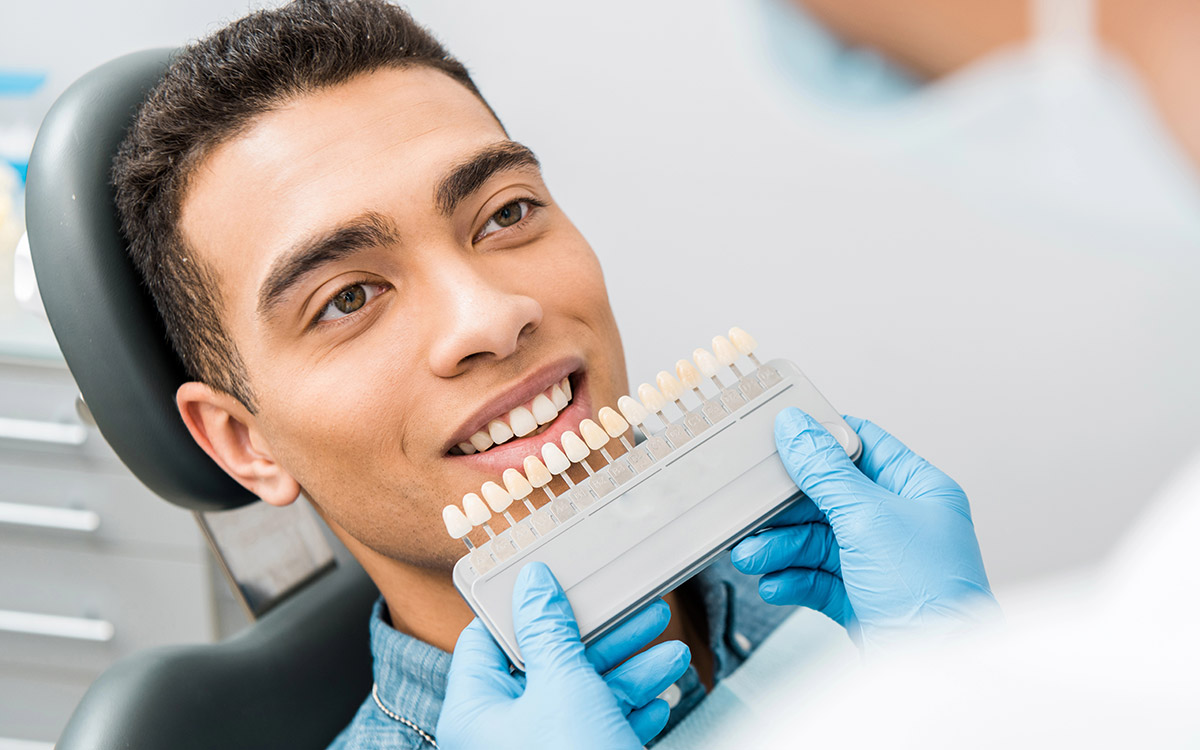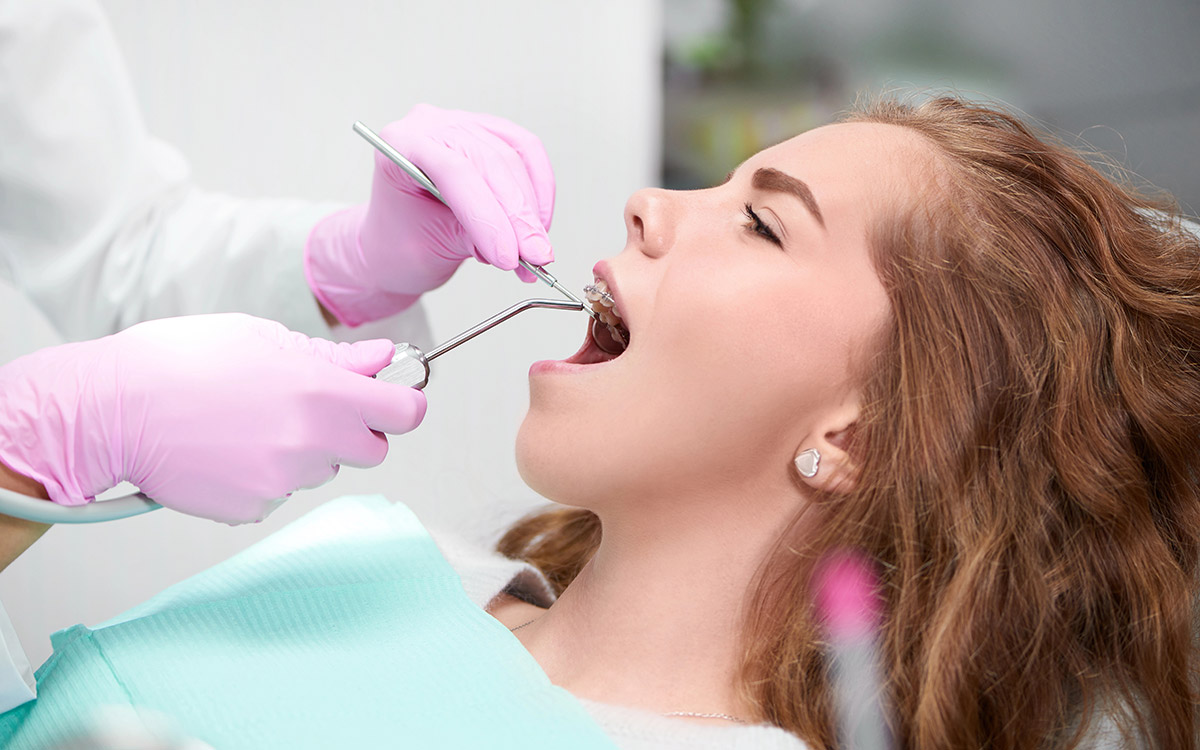The gums are tenacious tissues that cover and stabilize the teeth. Gums’ natural hue varies from person to person and ranges from red to pink. However, some people have brownish or darker gums due to the natural melanin pigment.
Other people may also be born with black gums due to other causes, such as medications their mother took while pregnant. However, if the color of your once-red or pink gums has recently become black, it may be a sign of an underlying health problem.
What Is Making My Gums Turn Black?
Various conditions can cause your gums to turn black, including:
Poor oral hygiene
Plaque and tartar build up around the gums can cause gum discoloration and disease. Poor dental routines, such as failing to brush or floss your teeth daily, can contribute to this. You may need a deep cleaning if your teeth have a lot of tartar or plaque.
Smoking
When you smoke, your gums, lower lip, and cheeks may develop dark to blackish discoloration patches. This condition is called smoker’s melanosis. The nicotine in tobacco can stimulate melanocytes, the specialized cells that produce melanin in the body, to create more melanin than usual. It causes your gums to turn darker.
The inside of the mouth can change color in patches or all at once. The color change may also occur on the lower lip and cheek interiors. Giving up smoking is associated with less gum discoloration. This suggests that smoking-related gum discoloration may be reversible.
Pregnancy
You can develop plaque on your teeth if you do not practice appropriate oral hygiene during pregnancy. It can induce gum inflammation, which can result in darkened gums.
Melanin
Melanin gives color to hair, skin, and eyes. It is a pigment that the body naturally creates. So, a person with higher melanin in their body usually has darker hair, complexion, and eyes. They may also have dark brown or black gums. So, there is no reason to be concerned if you have always had dark gums.
Medication
Doctors use Minocycline to treat several skin diseases, including chlamydia and acne. Pigmentation or coloring, which can occasionally happen in the mouth, is a rare side effect of minocycline.
Other medications that might result in black gums include antibiotics, antimalarials, antipsychotics, and cancer drugs.
If you developed black gums after taking any of these medications, let your doctor know. Your doctor might prescribe something different.
Amalgam tattoo
An amalgam tattoo looks like a black, grey, or blue patch and can appear anywhere in the mouth, including the gums but usually appears next to a filling. The amalgam tattoos occur due to the deposition of amalgam, the mixture used for fillings in crowns.
When bits of this substance become loose, they can manifest themselves beneath the gum’s outer layer. Amalgam tattoos pose no health risks. So, they do not require treatment.
Acute necrotizing ulcerative gingivitis
Acute necrotizing ulcerative gingivitis, sometimes referred to as trench mouth, is gum inflammation. It leads to sore gums, poor breath, and fever. The disease may result in black or grey gums if a layer of dead tissue accumulates on top of the gums.
Trench mouth occurs due to the rapid growth of oral bacteria because of gingivitis. Stress, lack of sleep, an unhealthy diet, and poor oral hygiene can all contribute to the proliferation of bacteria.
Some early signs of the disease include bad breath, gum bleeding, excessive saliva production, and general malaise. Ulcers may also develop on the gums along the edges of the teeth. The treatment of trench mouth is simple and involves a dentist cleaning your mouth and may prescribe antibiotics.
You can prevent repeat infections by maintaining clean teeth and gums and using medicated mouthwash.
Peutz-Jeghers syndrome
Peutz-Jeghers syndrome is a genetic disease that can cause polyp formation in the gastrointestinal tract. It can also increase the risk of developing cancer. One of the early indications of this condition is the emergence of dark blue or dark brown freckles on the skin of the toes and fingers and in the mouth.
Typically, Peutz-Jeghers freckles manifest in childhood and disappear with age. Another significant symptom is a blockage or bleeding in the gut, which also often affects children. A genetic test can confirm if you have Peutz-Jeghers syndrome.
Addison’s disease
Addison’s disease is a disorder of the adrenal glands, which produce various hormones. This condition prevents the glands from generating enough hormones.
The immune system is the primary culprit in most Addison’s disease cases as it causes the defense mechanism to attack and damage the adrenal glands. Early indications include tiredness, loss of appetite, experiencing unusual thirst, muscle weakness, and unintentional weight loss.
As Addison’s disease worsens, the patient may suffer darkened gums and lips, also known as hyperpigmentation. The inflammation can also cause darker skin patches in other body parts. Usually, these black patches appear around scars, on the knuckle, in the palm lines, and on the knees.
If Addison’s disease goes untreated, severe consequences may result. An adrenal crisis can occur if hormone levels are too low. An adrenal crisis is characterized by extreme dehydration, rapid and shallow breathing, sleepiness, and pale, clammy skin. An adrenal crisis is a critical medical issue; it is a medical emergency.
Oral cancer
Black gums can occasionally point to severe diseases, such as malignant melanoma, a type of oral cancer. Gums affected by this cancer develop dark spots.
Prevention
Experts say that the best way to keep healthy teeth and gums is through oral hygiene and reducing sugar intake. Regular brushing, daily flossing, and limiting your sugar intake are all ways to maintain healthy oral hygiene. Also, visit a dentist regularly.
Treatment Options
The underlying cause of black gums will determine the appropriate course of treatment. Smoking-related gum color alterations might be reversible.
A doctor should be able to offer suggestions and encouragement for quitting smoking. Most of the time, medicine is required to manage conditions like Addison’s disease or gum infections.
To make the gums look lighter, cosmetic dentists may recommend gum bleaching. However, bleaching should only be done by a qualified specialist because it can harm your gums.







